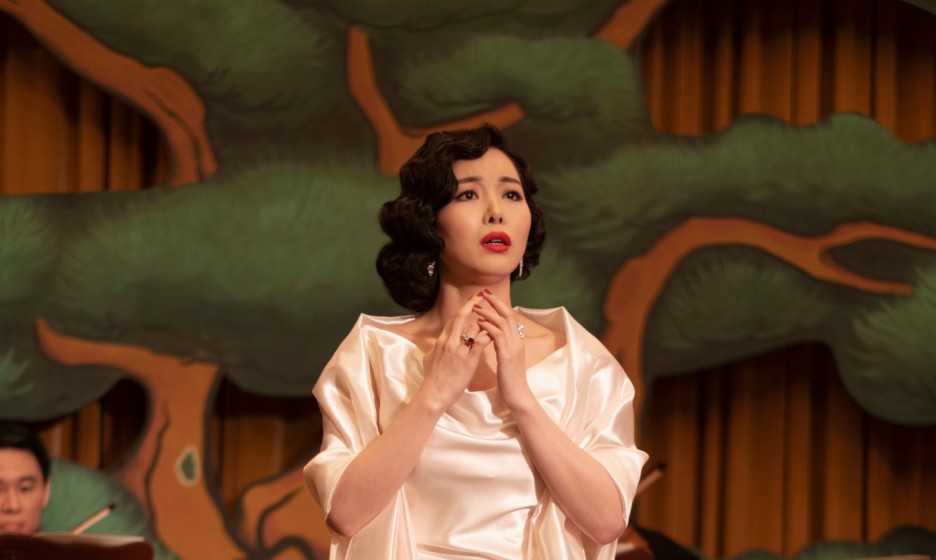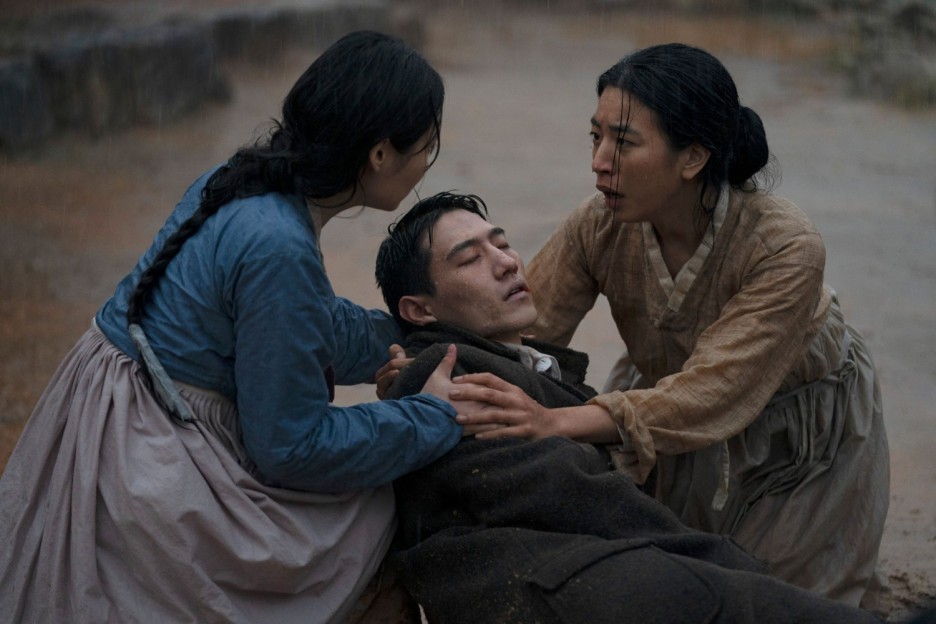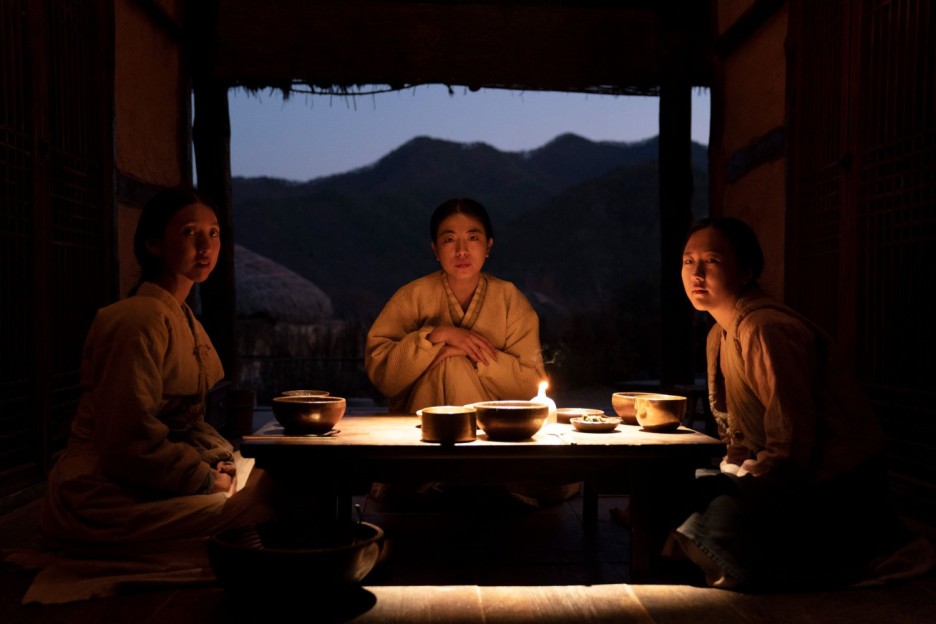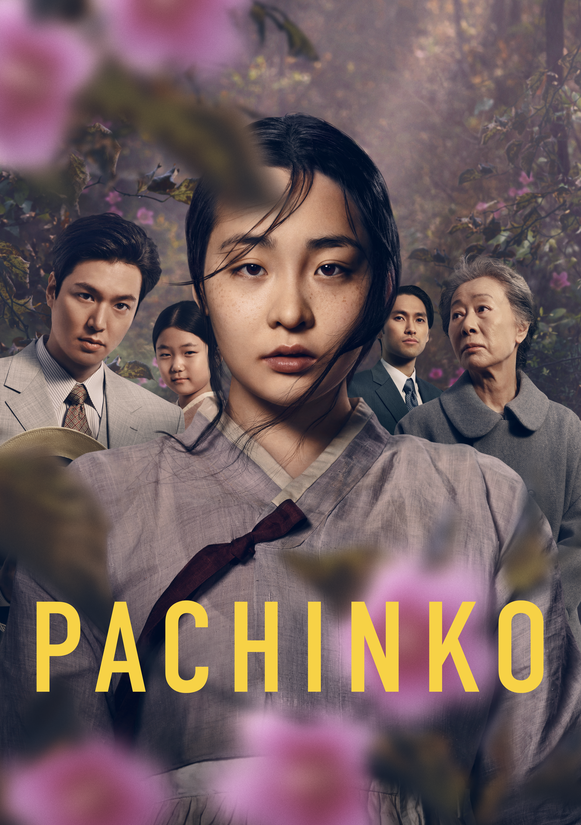Apple TV+'s 'Pachinko' Is the Perfect Show for Our Times

With the Russo-Ukrainian War, the world has become a grimmer place as we all bear witness to Russia's invasion of a sovereign nation, something we never thought would happen in the 21st century. As the conflict escalates and heads toward a possible World War III, it may feel silly to discuss entertainment.
However, I recently started watching Apple TV+'s "Pachinko," and I was immediately struck by how perfect the timing for this show is. Many of the show's themes and messages seem eerily reflective of the discourse the world needs right now - though, I'm almost certain that neither the showrunner Soo Hugh nor Apple could've predicted that their show would come out amidst such dire world events.
From the opening quote, which primes the audience for a story about a nation's people and a family's struggle to endure, to the opening sequence with the main cast dancing to retro music, including South Korean superstar Lee Minho busting out a few moves while looking dashing for the camera, I knew that "Pachinko" and its place in history were going to be truly special.
Why "Pachinko" Is the Perfect Show for Our Times
Released on Apple TV+ on March 25, 2022, "Pachinko" is an epic historical family drama about four generations of a Korean family as they leave their homeland with the hope that their hard work and sacrifices will allow their family to survive and thrive. Starring "Minari"'s Youn Yuh-jung, Lee Minho, Jin Ha, and Kim Minha, the eight-episode series is based on the novel of the same name by Min Jin Lee. Over the course of the series, the family at the center of "Pachinko" end up calling Osaka, Japan and then New York home.
While the story and setting of "Pachinko" may seem hyper-specific and touches upon lesser known topics, such as the treatment of Zainichi Koreans in Japan, the events of the show resonate with current world conflicts and is a tribute to human endurance.
So, what lessons can we draw from "Pachinko" and how can they help us get through tough times? Here are a few topics we can all learn from that I picked up from just the first episode.

1. Enduring Through Hard Times
"Pachinko" is a show obsessed with legacy. In the very beginning of episode one, Jeong In-ji's Yangjin speaks about a curse in her blood that has prevented her from giving birth to a child who survives past the age of one. However, when she gives birth to Sunja, our series protagonist, the midwife reassures her that the baby is a strong one, and a family will survive through her.
We quickly get the sense that "Pachinko"'s story is about the choices that this family will make to survive through the harshest times. There's a sort of defiance against the odds and against fate that permeates this show, which reminds me of the defiance that we've seen from the Ukranians who've joined fighting effort, and the everyday Ukrainians that are enduring through horrifying attrocities and uncertainty to survive.
2. Passing Down Generational Trauma
"Pachinko" tells its story by juxtaposing two timelines, the one following young and teenage Sunja in the 1910's in Japanese-occupied Korea and that following Sunja as a grandmother and Jin Ha's Solomon Baek in 1980's New York and Osaka, Japan. By telling the story through both time periods, we can see how the traumas of the past affect future generations by how Youn Yuh-jung's Sunja treats her grandson Solomon. A single faraway look by Youn is enough to convey the horrors she's seen and the difficulties she's dealt with throughout her life.
Even within the same time period, we can see how trauma can affect across generations. During a drunken dinner, Sunja's friend, Fisherman Song, played by an excellent and highly sympathetic Joo Young-ho, commits sedition and nearly gets Sunja's parents in trouble for housing him. When speaking about the hate he feels towards his Japanese oppressors, Fisherman Song remarks, "Just like us, our children will be cursed."
Fisherman Song's words reveal that though future generations may not directly experience the oppression at hand, past atrocities will still affect them as each generation passes down hate and resentment. For an example of this, just look to any mention of "comfort women" conscripted by Japanese troops during World War II. Similar feelings of hate have been expressed by the Ukrainians toward Putin's Russia. We can only guess how this trauma will then be passed down to future generations of Ukrainians.

3. Portraying Complicated Geopolitics Honestly
With such a dense story based on heavy topics, such as the Japanese occupation of Korea and the discrimination against Zainichi Koreans in Japan, you would expect a villainization of imperial Japan or Japanese people - à la how the movie "The Patriot" portrays the British. However, what I found impressive about "Pachinko" is how honestly it approaches Japan and its people.
Sure, there are brutal and frightening scenes, where imperial Japan is obviously the bad guy, such as when Sunja's parents are questioned by the kempeitai (aka. the Japanese military police) regarding Fisherman Song's whereabouts and when Fisherman Song is beaten upon capture.
However, there are just as many scenes and perhaps even more where the Japanese people are treated with much more nuance, such as Solomon's father, Soji Arai's Baek Mozasu, easy rapport with his Japanese Pachinko parlor regulars and Solomon's close friendship with Kaho Minami's Etsuko, his father's girlfriend. Even one of the dreaded kempeitai is treated with nuance as he exercises restraint and keeps the other officer in check.
These careful depictions of the nuances that a nation's people can have are important in a time where stereotyping can lead to great harm. As we proceed in this conflict-ridden time, we must make sure we separate a nation's people from their government, as they may not necessarily be in agreement.
3. Exploring Immigration and Where We Came From
Unlike the typical Asian immigration story that we usually see in U.S. media, Sunja ends up moving to Osaka and raising her family there. Because of this, Solomon is trilingual, fluent in Korean, Japanese, and English. When he meets with his white superiors at the financial institution he works for, they mistake him for being Japanese, and Solomon is forced to correct them by informing them he only grew up in Japan.
This extra layer of complication in Solomon's identity makes us consider how Sunja's decision to marry Baek Isak and follow him to Osaka has shaped her children - just as how I often wonder how different of a person I would've been if my parents had never immigrated to the States.
As the number of Ukrainians fleeing Ukraine increases and as they settle throughout neighboring countries, we'll also have to consider the affects of immigration and how this mass exodus affects the Ukrainian sense of identity. As later generations have to adapt to life in a new country, what will they gain and what will they lose? Only time will tell.
4. Lingering Effects of Imperialism and Colonialism
There is no denying that "Pachinko" is also set to deal with the lingering effects of imperialism and colonialism. Considering that many of the main characters are Zainichi Koreans (aka. ethnic Koreans who immigrated to Japan and their descendants whose roots date back to Korea under Japanese rule), the show illustrates how imperialism and colonialism still affect them through the discrimination that still exists.
Due to discrimination, Zainichi Koreans were often pushed to lesser desired jobs. Operating Pachinko parlors - seen as akin to gambling - became one of the main occupations that Zainichi could take. Thus, it's no surprise that Baek Mozasu is a Pachinko man, though he's successful enough to contemplate opening a second store.
This barring of jobs is reminiscent of our own history of how we treated Chinese immigrants to the U.S. Seen as a threat to white labor, Chinese immigrant men were often relegated to "womanly" jobs, such as operating restaurants or laundromats. This perception then bled into how American media chose to depict and sideline Asian men, often creating Asian male characters who were weak or feminine. Even today, Asian men often find it hard to escape the stereotyping that began through a drafted American law.
Of course, the effects of imperialism and colonialism affect other groups within the U.S. And, due to the different experiences these groups have had in America, the effects are going to vary. However, as Russia continues to encroach upon Ukraine, we'll have to see how Russia's latest form of imperialism will come to affect the region and its people.

5. Finding Beauty in Darkness
After reading all this, I'm sure you're probably under the impression that "Pachinko" is not the happiest of stories to watch. Though that may be true, the strength of "Pachinko"'s story is the hope it shines on human endurance. How the story insist that no matter how much impossible odds your family may have stacked against them, it's human to want to survive and thrive. You can see this in the show's stunning cinematography and how its subjects are lovingly treated by the camera. Even as characters suffer humiliation or oppression, they're depicted with brilliant dignity.
Early on "Pachinko"'s first episode, Fisherman Song has an exchange with young Sunja, where he insists that even a woman who suffers from domestic abuse at home and says that "death thinks he is too good for her" secretly years to live. I believe this is a shared human trait that extends far beyond the characters in "Pachinko." Though there may be much darkness ahead before any resolution appears for the Ukrainian people or any oppressed group out in the world, "Pachinko" is a beautiful reminder and call to persist. Humanity has gone through the ugliness of war and the horrors of authoritarianism. Though it won't be easy, we will endure - just as the Sunja and her family has.
"Pachinko" premiered on Apple TV+ on March 25, 2022 with the first three episodes. Consisting of eight episodes, one episode will be released every Friday until April 29, 2022. Start following this family's epic journey today!
For more entertainment news and commentary, check out Enstarz! We bring you the latest on your favorite celebrities, TV shows, and films.
© 2025 Enstarz.com All rights reserved. Do not reproduce without permission.






